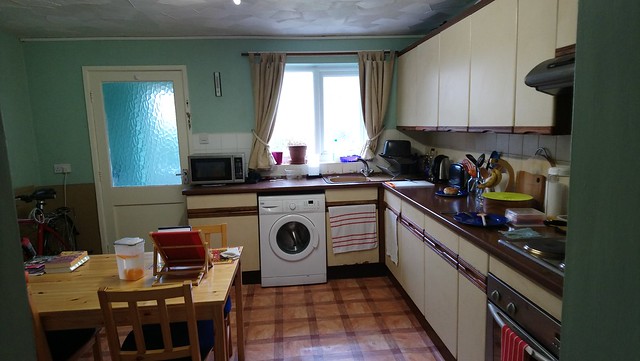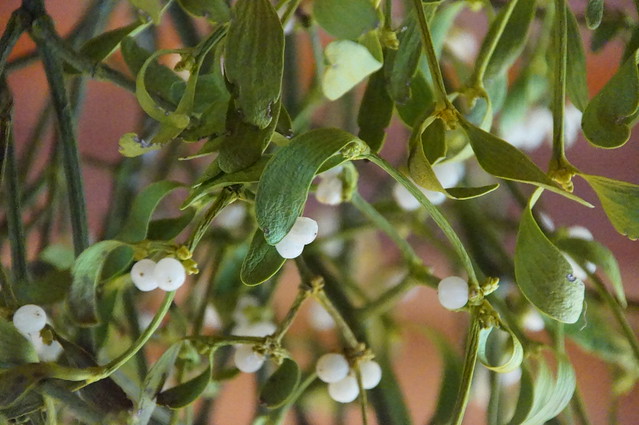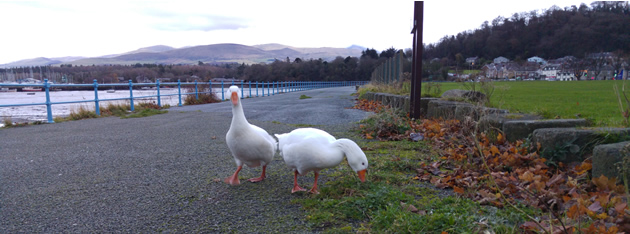While putting together a post on my Celtiadur blog about words for ships and boats in Celtic languages, I realised that words for boats, ships and other nautical things in English come from many different languages. So I thought I’d write a blog post about them.

The word boat comes from Middle English bot (boat, the path or course of one’s life), from Old English bāt (boat), from Proto-West Germanic *bait, from Proto-Germanic *baitaz (boat, small ship), from Proto-Indo-European *bʰeyd- (to break, split) [source].
The French word bateau (ship, boat), the Dutch word boot (boat), and the German word Boot (boat) were all borrowed from Middle or Old English.
Words for boat in North Germanic languages, such as Swedish (båt), Danish (båd) and Icelandic (bátur), were borrowed from Old Norse bátr, which was borrowed from Old English bāt (boat) [source].
Some words for boat in Irish (bád), Scottish Gaelic (bàta), Manx (baatey) and Welsh (bad) were also borrowed from Old English or Old Norse [source].

The word ship comes from Middle English schip (ship, boat), from Old English scip (ship), from Proto-West Germanic *ship (ship), from Proto-Germanic *skipą (ship), from unknown origins [source].
Ship can be used to refer to a water-borne vessel generally larger than a boat, while boat usually refers to vessels smaller than a ship but larger than a dinghy. Boat also refers to submarines of any size, and lakers (ships used in the Great Lakes trade in North America).

A dinghy is a small open boat, propelled by oars or paddles, carried as a tender, lifeboat, or pleasure craft on a ship; a sailing dinghy, or an inflatable rubber life raft. It comes from Bengali ডিঙি (ḍiṅi – canoe), probably from Sanskrit द्रोण (droṇa – wooden vessel, bucket, trough), Proto-Indo-Iranian *dráwnam (wooden object), from Proto-Indo-European *dréw-no-m, from *dóru (tree, wood) [source].
A yacht is a sailing boat larger than a dinghy but smaller than a sailing ship, often with a cabin. It can also be a motor-powered private boat. It comes from yeaghe (light, fast sailing ship) from Dutch jacht (yacht, hunt), from jaghtschip (light sailing vessel, fast pirate ship: lit. “pursuit ship”).
Apparently the original Dutch jaghtschip were built to chase pirates and smugglers from the coast. In 1660 the Dutch East India Company presented one to King Charles II, who used it as a pleasure boat. It was then copied by British shipbuilders as a pleasure craft for wealthy gentlemen [source].

Another type of boat is a barque, which is a sailing vessel with three or more masts, with all masts but the sternmost square-rigged. It comes from Middle English barke (boat), from Middle French barque, from Latin barca (baris – a type of flat-bottomed freighter used on the Nile in Ancient Egypt), from Ancient Greek βᾶρις (bâris – Egyptian boat), from Coptic ⲃⲁⲁⲣⲉ (baare – small boat), from Demotic br, from Ancient Egyptian bꜣjr (transport ship, type of fish) [source].

The word barge (A large flat-bottomed towed or self-propelled boat used mainly for river and canal transport of heavy goods or bulk cargo), comes from the same roots, as does the Spanish barco (boat), the Galician barco (ship, boat, barge) and the Portuguese barco (boat) [source].

The word canoe (a small long and narrow boat, propelled by one or more people) comes from Spanish canoa (canoe), probably from Taino *kanowa (canoe), from Proto-Arawak *kanawa (caone) [source].

Canoes are generally open on top, while kayaks are covered over except for the cockpit where the paddler sits. Kayak comes from Inuktitut ᖃᔭᖅ (qayaq – kayak, man’s boat), from Proto-Eskimo *qayaʁ (kayak) [source].

If kayaks are men’s boats, are there women’s boats as well? There are – they are the umiak (a large, open boat made of skins stretched over a wooden frame that is propelled by paddles), from Inuvialuktun ᐅᒥᐊᖅ (umiaq – women’s boat) [source].
Incidentally, navy (a country’s entire sea force, including ships and personnel) comes from Middle English nave (navy), navye, from Old French navie (navy), from Latin nāvigia, from nāvigium (vessel, ship boat, from nāvis (ship, boat, vessel), from Proto-Indo-European *néh₂us (boat). In Old English navy was sciphere (“ship army”) [source].
English words from the same roots include navigate, nave, nautical and astronaut (lit. “star sailor”) [source].






























